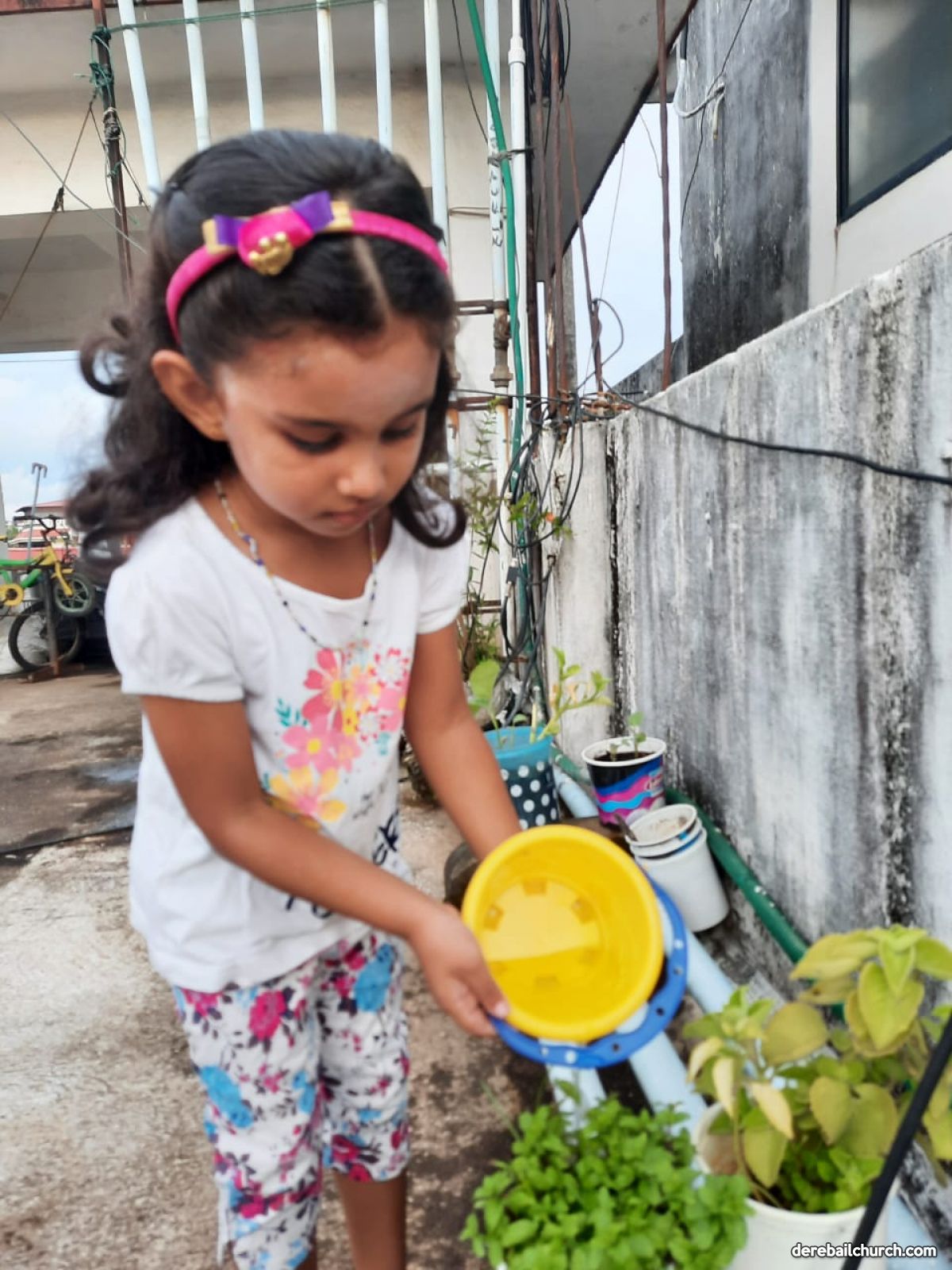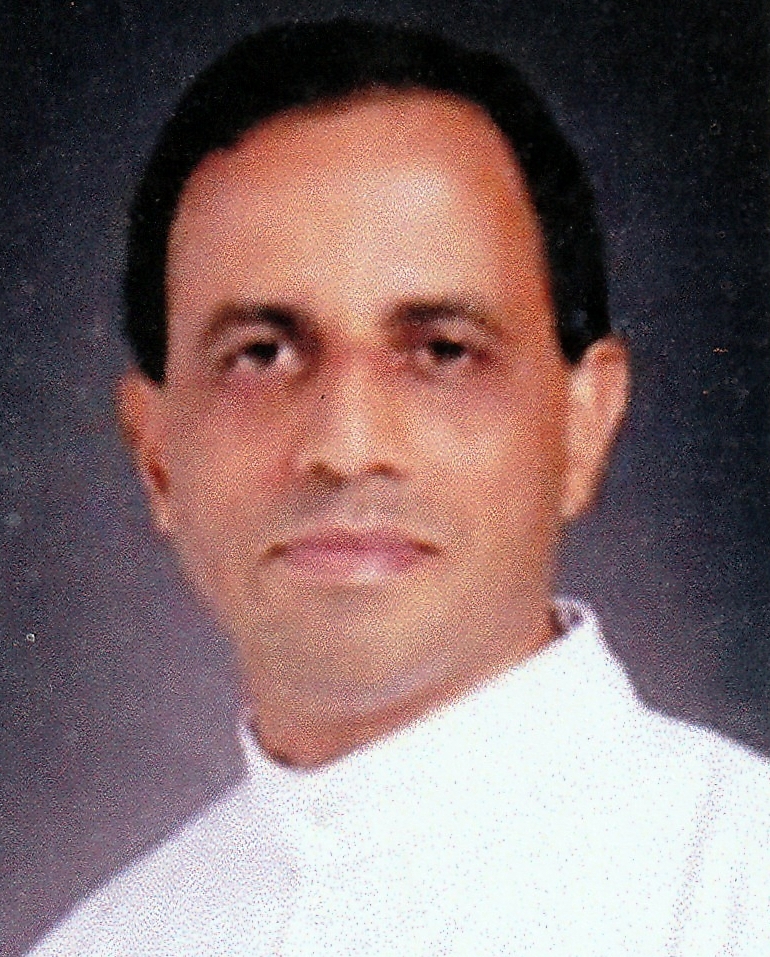World Environment Day by Lynsha Lobo Martis Back
Little Aiyana Pearl D'souza (4 years) tending to her garden at home
World Environment Day
As the month June sets in, nature announces its active presence in our life by the rains that cool the city, the flowers that blossom in our gardens and by the smell of the fresh earth that unsettles when the first rain strikes the soil. The torturous heat that we all complain about in the months of April and May is warded off by the cool breezy climate, allowing us all to dream of waking up late, eating a hot snack or indulging in lethargy. Spoiler alert, June also marks the beginning of an academic year. While the children are all set to go to school, it becomes a prerogative for the parents to keep them from getting wet in the rain and thereby not allowing them to fall sick. Once at school the children became the responsibility of their teachers. It was the school’s and the teachers’ duty to educate children and keep them informed on things that mattered. The celebration of World Environment Day too was one such responsibility that the school had towards both the children and the environment. This possibly was the trend that was set in ever since the United Nations designated June 5th as the World Environment Day all across the globe.
The Pandemic that still lurks around had brought the world to an alarming halt in the year 2020. While our honourable Prime Minister announced a Lockdown to curb the spread of the virus, mankind engaged itself in trying to overpower this virus. The church was brought into our homes. We prayed and celebrated mass as a family within the four walls of our home. Parents and youngsters began working from home. Space within the house had to be reorganized so that official meetings were not disturbed with the whistling sound of the pressure cooker from the kitchen. Above all learning became digital. Children and teenagers were expected to attend classes from home while teachers strained their voices from behind a digital screen. Thus, each and every individual on this earth set aside the year 2020 to get used to the ‘new-normal.’
Today, we are in a situation where all the activities that we participated in as a global community, a nation and a society are confined to the four walls of our house. We work from home so that we can meet our daily necessities. We learn from home so that our education is not impaired. We pray from home so that our faith keeps us alive in spirit. But what about our responsibility towards the earth and towards the generations of the future? We are at home to stop the spread of the virus and save mankind. But what about the nature around us? The preliminary step towards this is to initiate the celebration of World Environment Day in our homes.
Life in 2020 has taught us that education is not classroom restricted; children can learn at home too with the support of their parents and teachers, provided their motto is ‘to learn’. Yes, if our desire is to teach our children to protect and love nature, we need to support them in celebrating the environment. How can this be done? You could plant a sapling and inform your children on how to nurture the plant; you could teach them how to switch off the lights and fans not just to save on the electricity bill but also to conserve the nature; You could enlighten them on how water could be conserved; You could talk to them on rain-water harvesting. The options are many, the choice is ours. This shouldn’t be difficult because we are families that pray together and eat together. Probably the gardens in our houses should reflect the joint effort of our family as a whole. Celebrating our environment with our families is also the ‘new normal’ that we need to be used to.
The theme that United Nations has assigned for World Environment Day 2021 is ‘Ecosystem Restoration.’ This year we also witness the launch of the UN Decade of Ecosystem Restoration 2021-2030. Indeed, we belong to that generation which has welcomed the millennium, survived the pandemic and we ought to become that generation that is working on building a productive ecosystem.
Written by: Lynsha Lobo Martis | Landlinks Lower Ward



